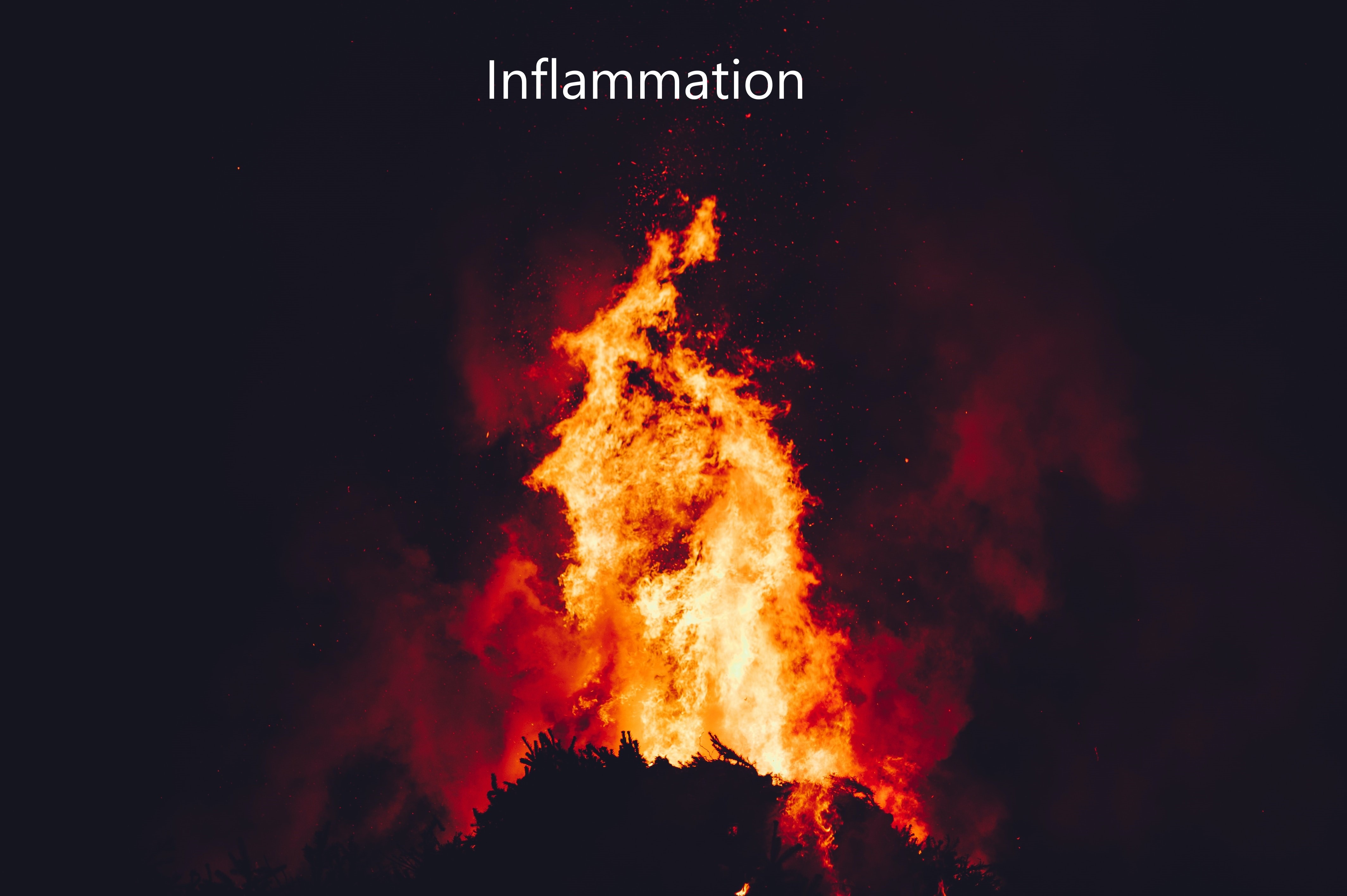Inflammation: nutrition, lifestyle and supplement hacks for IL-6, TNF-a and NF-κBUpdated 10 days ago

There are several strategies, including dietary, lifestyle modifications, and supplements, that have been shown to reduce the levels of IL-6 and TNF-α, thus helping to mitigate excessive inflammation [1].
A key strategy is to work at a level above IL-6 and TNF-a by reducing another messenger that activates both of these- NF-κB [1].
NF-κB is like the chief of the body's inflammation fire department [1]. This chief is responsible for overseeing the body's response to emergencies, like infections or injuries. It's involved in how the body responds to various triggers such as stress, germs, or even free radicals [1].
When NF-κB works properly, it calls in the inflammation response at the right time, with the right intensity, bringing into action IL-6 and TNF-α [1]. However, sometimes, NF-κB can trigger the emergency response even when it's not needed, or keep it going for too long. This can lead to what we call 'excessive inflammation' [1].
The inflammation equation:
Stress or infection + NF-κB (overactive) → Too much TNF-α and IL-6 → Excessive inflammation + CAT and SOD2 → Balanced inflammation [2]
Strategies to reduce inflammation:
-
Reduce NF-κB, TNF-α, and IL-6 [1].
-
Increase CAT and SOD2 [2].
-
Reduce the stress or infection [1].
Dietary Approaches:
-
Mediterranean diet: Associated with lower levels of inflammatory markers, including IL-6 and TNF-α [3].
-
Omega-3 fatty acids: Anti-inflammatory properties, reduces levels of IL-6 and TNF-α [4].
Lifestyle Modifications:
-
Physical activity: Reduces levels of inflammatory markers, including IL-6 and TNF-α [5].
-
Adequate sleep: Poor sleep quality or insufficient sleep duration can increase inflammation [6].
Supplements and adaptogens:
-
Resveratrol: Inhibits NF-κB signaling, decreases levels of IL-6 and TNF-α [7].
-
Quercetin: Inhibits NF-κB activation, reduces IL-6 and TNF-α production [8].
-
Vitamin D: Modulates immune response, inhibits NF-κB activation, reduces levels of IL-6 and TNF-α [9].
-
Sulforaphane: Inhibits NF-κB and reduces inflammation [10].
-
Fish Oil (Omega-3 Fatty Acids): Inhibits NF-κB activation, reduces production of inflammatory cytokines like IL-6 and TNF-α [11].
Boosting SOD2 and CAT can also help to balance the inflammatory response [2].
Several supplements have been shown to modulate the NF-κB pathway, potentially reducing inflammation [7,8,9,10,11].
References:
[1] Lawrence, T. (2009). The nuclear factor NF-kappaB pathway in inflammation. Cold Spring Harbor perspectives in biology, 1(6), a001651.
[2] Handy, D. E., & Loscalzo, J. (2012). Redox regulation of mitochondrial function. Antioxidants & redox signaling, 16(11), 1323–1367.
[3] Casas, R., Sacanella, E., & Estruch, R. (2014). The Immune Protective Effect of the Mediterranean Diet against Chronic Low-grade Inflammatory Diseases. Endocrine, Metabolic & Immune Disorders Drug Targets, 14(4), 245-254.
[4] Calder, P. C. (2017). Omega-3 fatty acids and inflammatory processes: from molecules to man. Biochemical Society Transactions, 45(5), 1105-1115.
[5] Gleeson, M., Bishop, N. C., Stensel, D. J., Lindley, M. R., Mastana, S. S., & Nimmo, M. A. (2011). The anti-inflammatory effects of exercise: mechanisms and implications for the prevention and treatment of disease. Nature Reviews Immunology, 11(9), 607-615.
[6] Irwin, M. R., Olmstead, R., & Carroll, J. E. (2016). Sleep Disturbance, Sleep Duration, and Inflammation: A Systematic Review and Meta-Analysis of Cohort Studies and Experimental Sleep Deprivation. Biological Psychiatry, 80(1), 40-52.
[7] Berman, A. Y., Motechin, R. A., Wiesenfeld, M. Y., & Holz, M. K. (2017). The therapeutic potential of resveratrol: a review of clinical trials. NPJ Precision Oncology, 1(1), 1-9.
[8] Li, Y., Yao, J., Han, C., Yang, J., Chaudhry, M. T., Wang, S., ... & Yin, Y. (2016). Quercetin, inflammation and immunity. Nutrients, 8(3), 167.
[9] Aranow, C. (2011). Vitamin D and the immune system. Journal of Investigative Medicine, 59(6), 881–886.
[10] Heiss, E., Herhaus, C., Klimo, K., Bartsch, H., & Gerhäuser, C. (2001). Nuclear factor κB is a molecular target for sulforaphane-mediated anti-inflammatory mechanisms. Journal of Biological Chemistry, 276(34), 32008-32015.
[11] Calder, P. C. (2015). Marine omega-3 fatty acids and inflammatory processes: Effects, mechanisms and clinical relevance. Biochimica et Biophysica Acta (BBA) - Molecular and Cell Biology of Lipids, 1851(4), 469-484.